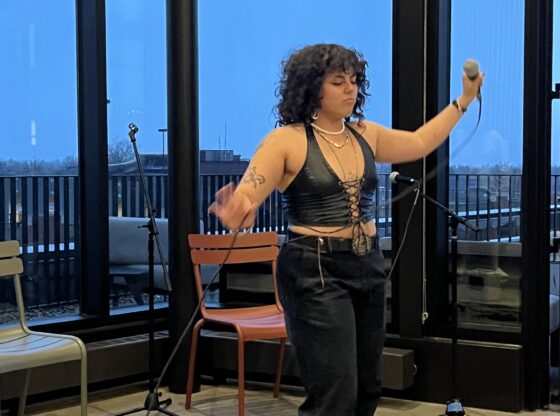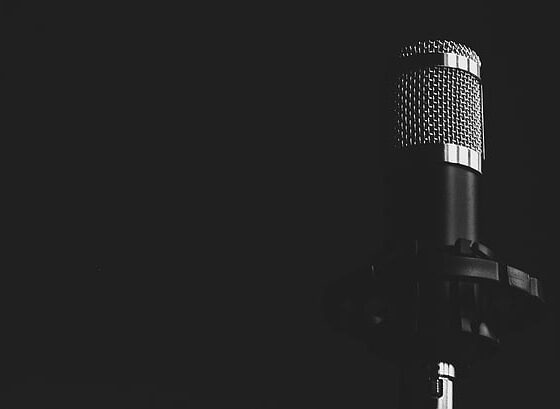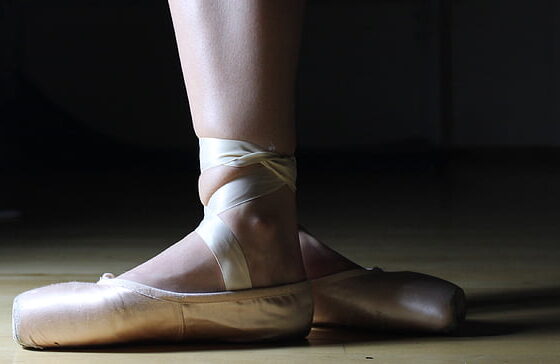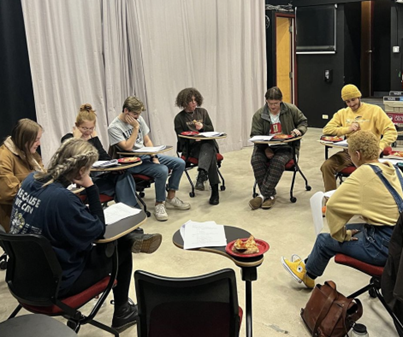 Photo by: Jill Hamilton
Photo by: Jill Hamilton
The great minds that pioneered new fields of study have become legendary names for college students – Albert Einstein, Sir Isaac Newton, Aldo Leopold, Sigmund Freud, Gregor Mendel – and soon, maybe George DeMartino.
DeMartino, professor of International Economics at the Joseph Korbel School of International Studies, is planning to launch the field of professional economic ethics with his new book, “Considerations on Professional Economic Ethics: Views from the Economics Profession and Beyond,” which is planned for release as an OUP handbook on professional economic ethics in 2013.
DeMartino has been working on the problem of ethical codes and training for economists for well over a decade. However, the idea first came to the forefront of the field with the release of the film “Inside Job” in 2010, which exposed the conflicts of interest of economics involved in the recent financial crisis.
In response, the American Economic Association passed new guidelines for disclosure last week, but according to DeMartino, that’s “just the tip of the iceberg.”
“Economists are in every sector in the economy – about 27,000 total, with 12,000 in universities and 15,000 in the public and private sector. In all of these locations, economists make decisions in ways we see and don’t see. When the interest rate changes, everyone knows. But much of what economists do is relatively invisible to the public, and yet it has just as big an impact,” said DeMartino.
According to DeMartino, many economists don’t realize the scope of their impact, or disregard it.
“Economists also don’t pay attention to the effect they have on other people. They know that the impact is direct with a doctor. When the doctor advises the patient, he is directly responsible for the life or death of that person. But the economists don’t see the people they affect. If the effect is indirect, there are no ethical issues, they think. That’s crazy. It affects a million people at once,” said DeMartino.
Although disclosure guidelines are useful for keeping politicians’ “hired gun” economists in check, DeMartino feels that even well-intentioned economists fall victim to hubris and closed-mindedness. The solution, according to him, lies in the training, studying and scholarly debating of ethics.
“The first thing we need is attention to the problem. We need to create a new tradition of critical inquiry into what it means to be an ethical economist,” said DeMartino. “Most leading economists in the world have not had five minutes of training in the ethical burden of being an economist. Most other professions with such a burden – doctors, lawyers, journalists – have wrestled with it for decades or more.”
Economics is actually DeMartino’s second career. His start in economics was heavily influenced by the ethical ramifications of economics on working families.
“I grew up in New Haven, Conn. When I was in college, the anti-apartheid movement in South Africa was very strong, and that was the issue that first got me interested in politics. Then, after taking a class in U.S. labor history, it became my passion. When I graduated, I knew I wanted to become a labor union organizer,” said DeMartino.
While working as a labor union organizer was extraordinarily exciting, the stress of the profession and the state of the economy made DeMartino want to enter the economic debate in a more profound way.
“There was a lot of deindustrialization in Connecticut,” he said. “Factories were closing every day, and employees were losing their livelihood. Watching that process unfold caused me to be concerned about the fairness of this system, and I became interested in Marxism. Economists had whole-heartedly sanctioned this grand experiment with the ‘neoliberal economy,’ and it had created inequality all over the world, and instability in the lives of working families.”
The inequality and instability is still apparent today, said DeMartino, although it may be more obvious when we look abroad.
“In the developing world, the effect of economists on people is much clearer to them. When World Bank comes in, people know that economists are having a direct impact,” he said.
“The effect here is just as strong – when you can’t find a job after graduation, that’s the work of an economist. Economists cast a very long shadow.”
For now, DeMartino is writing and editing books, papers and blogs to encourage fellow economists to be honest, open-minded, humble and pluralistic. For students, he warns them to be skeptical of prideful economists in the press.
“Understand that economics is an art, not a science. It’s never going to be a domain where we can be certain. Trust the economist that acknowledges that, and be wary of the economists who don’t,” said DeMartino.
The co-author of DeMartino’s new book, Deirdre McCloskey, will be coming to speak at DU in February as part of a speaker series entitled “The Specter of Ignorance.” The series is co-sponsored by the Josef Korbel School of International Studies and the Department of Economics, and is open to all students, faculty and staff.










